Peace lilies are favored by indoor gardeners for their lovely white flowers, glossy leaves, easy upkeep, and ability to purify air. Nevertheless, coaxing them into bloom can sometimes present a challenge. If you wish to enhance your living area with the beauty of peace lily flowers, you’re in the right place.
Let’s explore 11 proven techniques to encourage your peace lily to flower, transforming it from a simple houseplant into a vibrant and eye-catching centerpiece for your indoor space.
Provide Proper Lighting
Mimicking their native rainforest setting, peace lilies flourish best in dappled shade. Although they tolerate low light levels, placing your plant in a spot with bright, indirect light will facilitate optimal blooming. Direct sunlight exposure can burn their leaves, so avoid positioning them right at a sunny window.
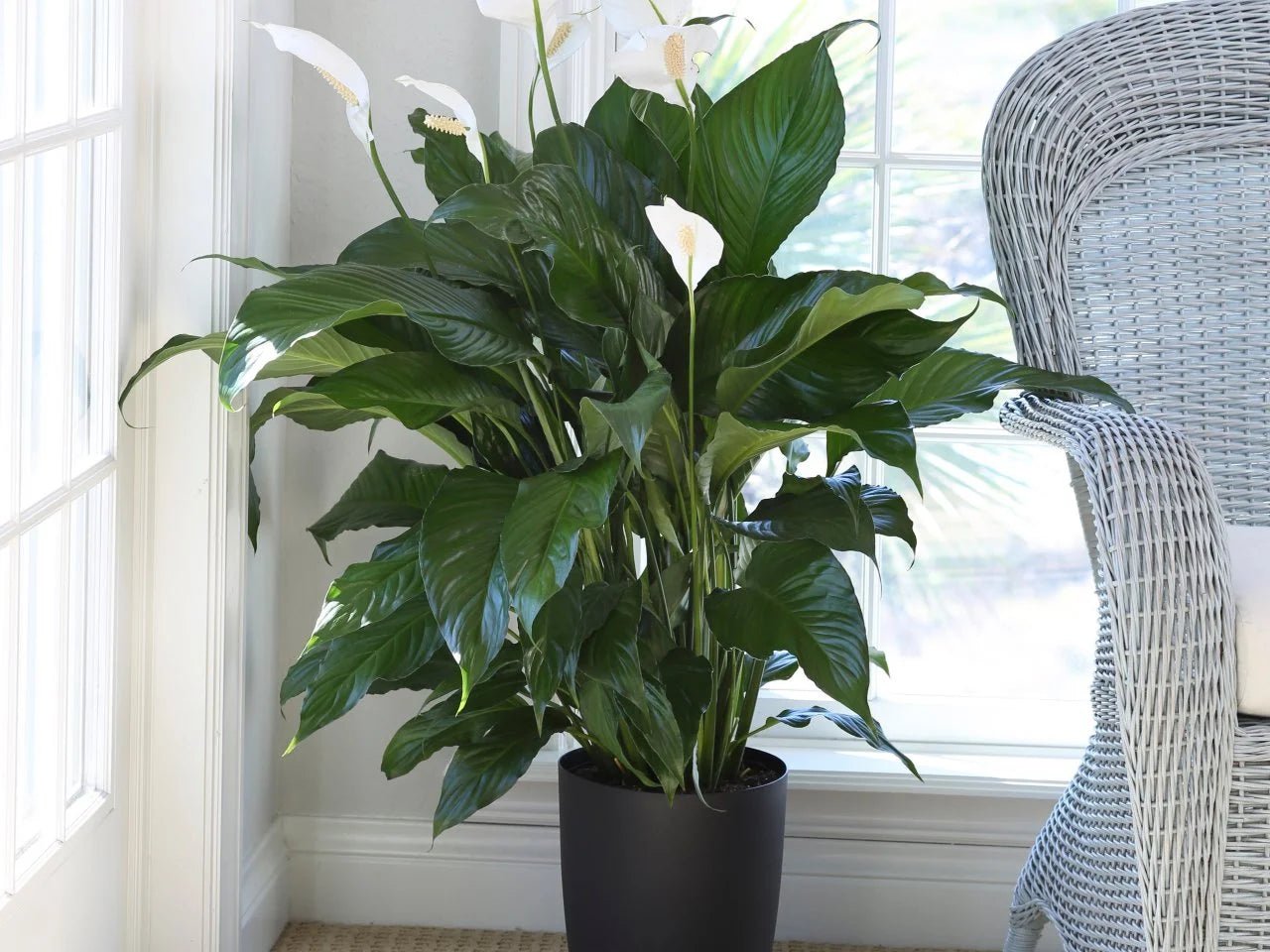
Keep the Watering Consistent
These tropical plants need a regular supply of moisture, however they are prone to root rot and don’t thrive in overwatered conditions or stagnant water. Allow the top inch of the soil to become dry to the touch between waterings. When watering the peace lily, saturate the soil until the water drains out from the container’s bottom.
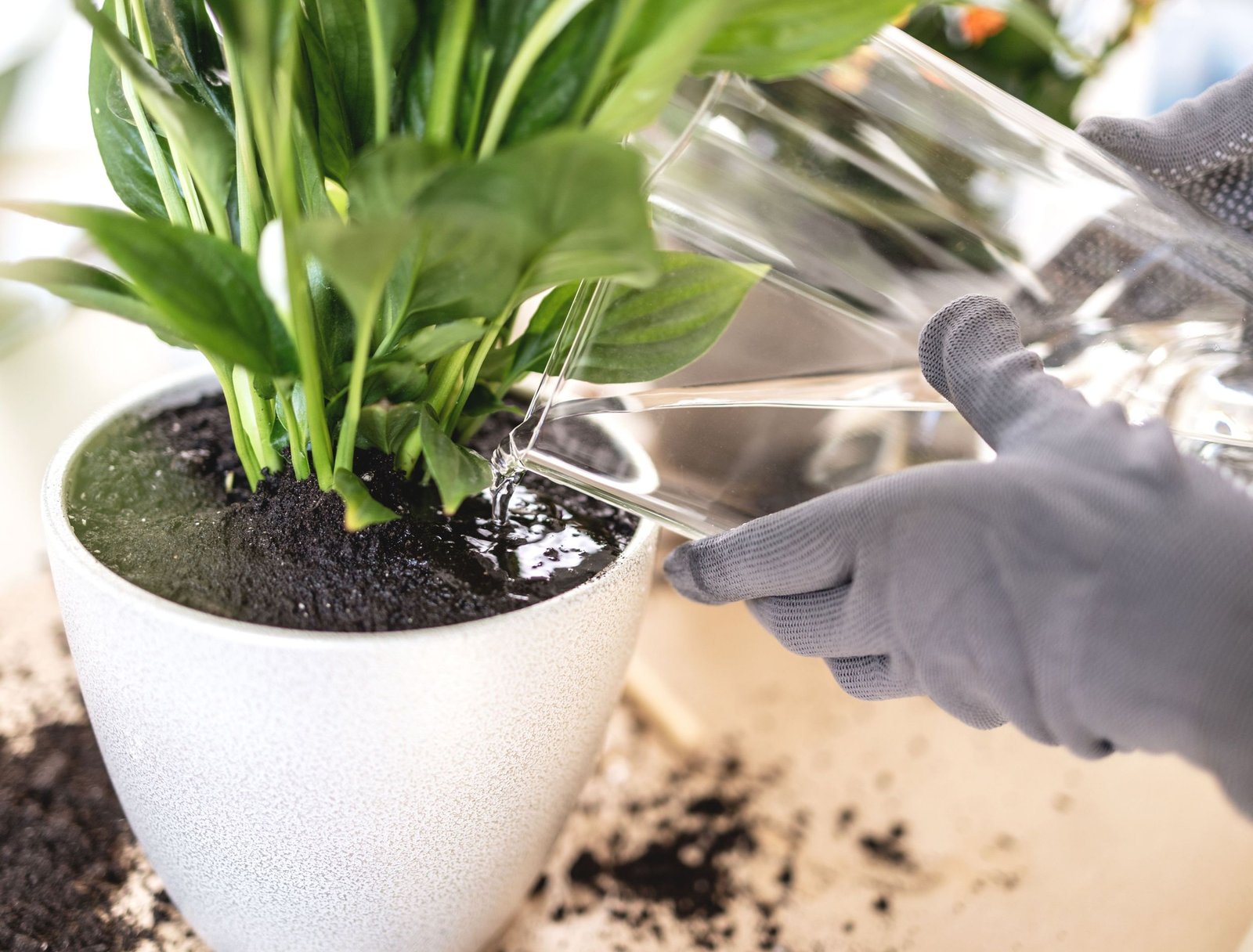
Maintain Adequate Humidity
Being jungle natives, peace lilies thrive in humid environments. Utilizing a humidifier, placing a water-filled tray filled with pebbles beneath the pot, or frequently misting the leaves can raise the humidity levels for your plant. For the best chance of a bloom, strive for a humidity level of at least 50%.
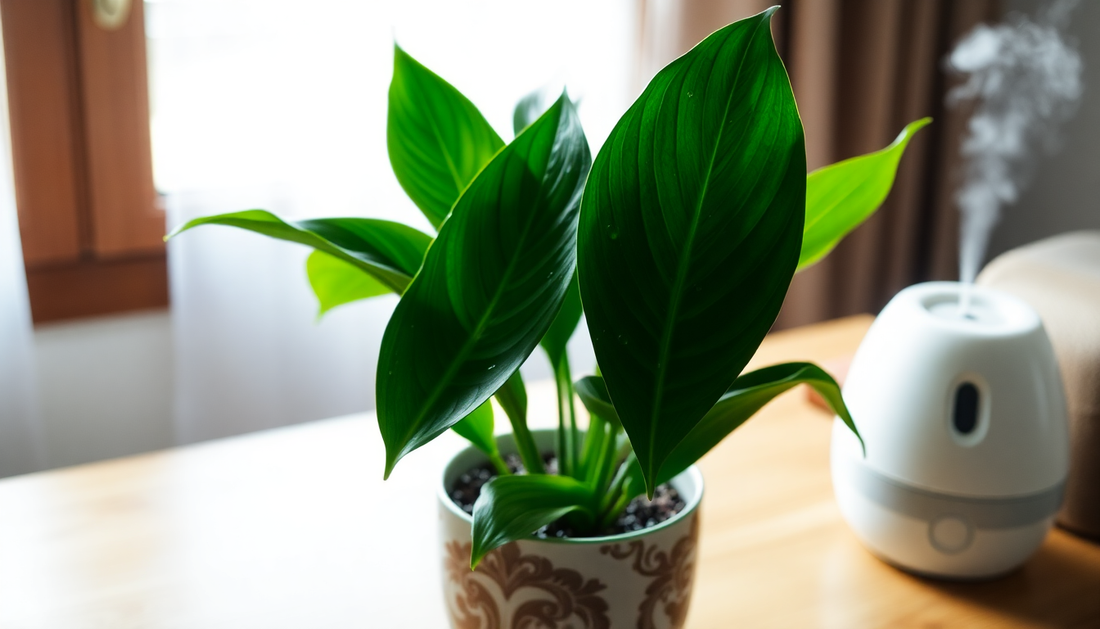
Fertilize Moderately
Using a diluted (half-strength) standard houseplant fertilizer every 6–8 weeks throughout the growing season will encourage a healthy plant and flowering. However, be careful to avoid over-fertilization, which might be harmful to the plant.

Repot When Necessary
Peace lilies can become root-bound as they develop. Repotting in a larger container should be done if you notice roots poking out of the drainage holes or the soil quickly drying out. This provides adequate space for root systems and stimulates the production of flowers.
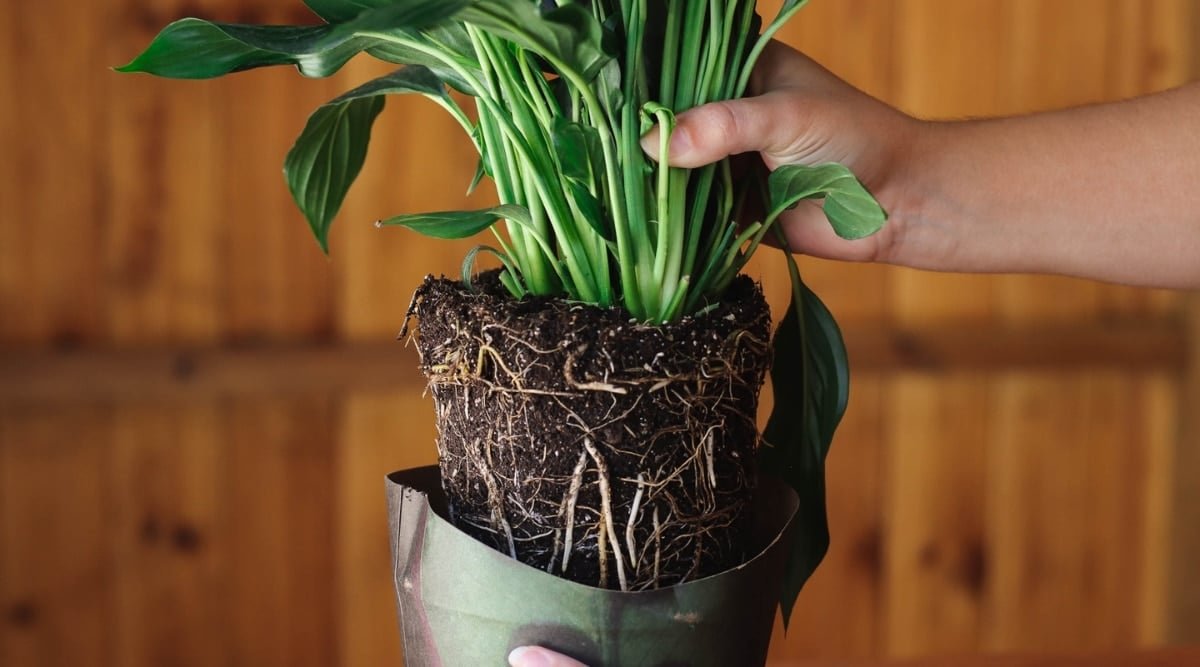
Keep Temperatures Stable
Peace lilies prefer temperatures in the range of 65 to 80 degrees Fahrenheit (18–26 degrees Celsius). Protect them from drafts and sudden temperature fluctuations, as these can cause stress and prevent blooming.
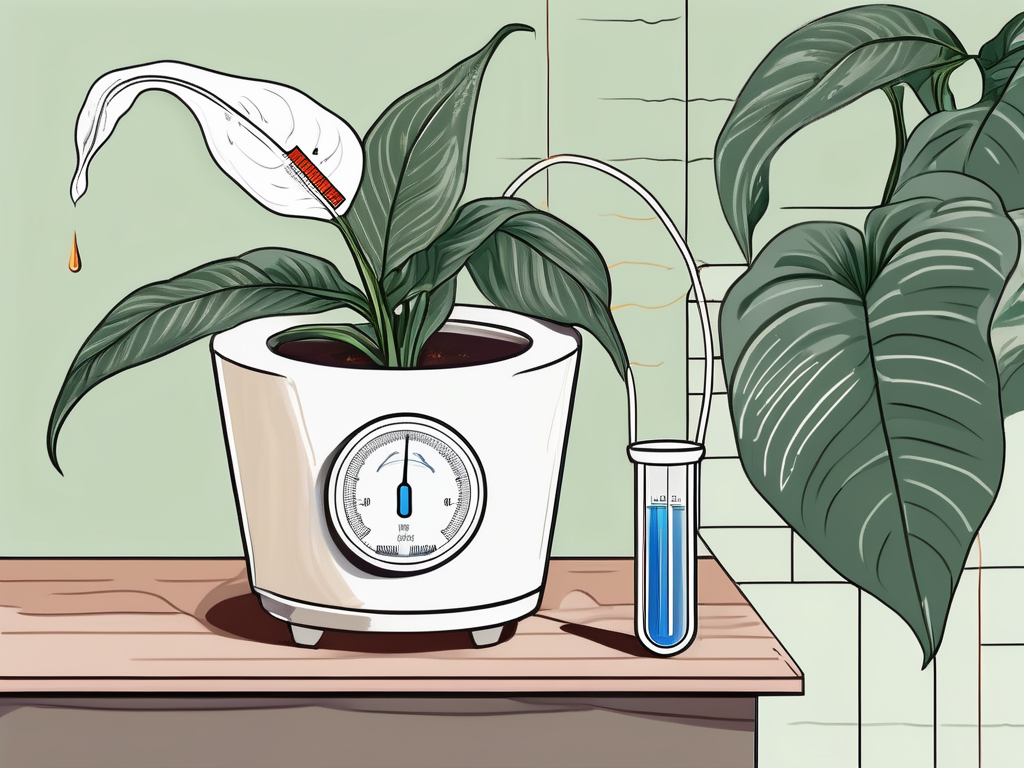
Prune Spent Flowers and Yellow Leaves
Regularly removing faded flowers and yellowing leaves directs the plant’s resources toward the production of new growth and flowers. To avoid damaging the peace lily, make sure to use clean, sharp scissors or shears.
:strip_icc()/bhg-peace-lily-turning-yellow-1400802780-44d6fe364e4c47c0b22653499ce30ea0.jpg)
Provide Proper Soil
The right soil will make all the difference and ensure proper growth of your plant. Use a peat-based potting mix that drains well. A soil that ensures proper aeration and drainage will boost the plant’s general well-being, thus boosting its bloom potential.
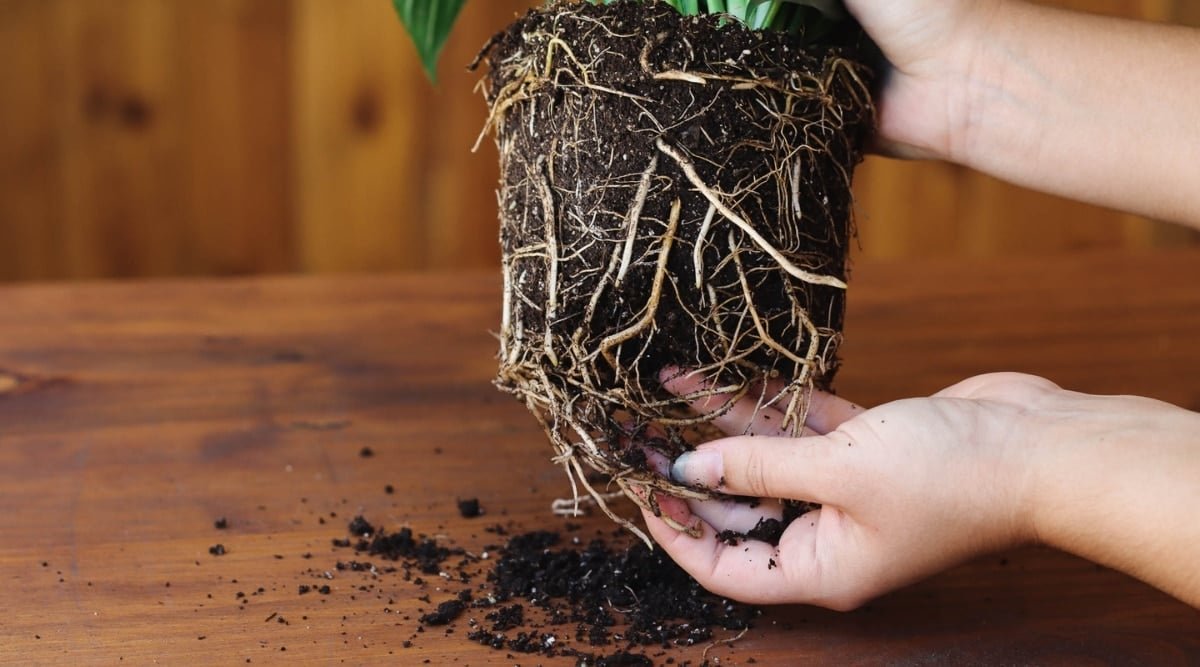
Consider the Pot’s Size
Even though peace lilies can flower when they are somewhat root-bound, a pot that is too small might impede development and flowering. Conversely, a pot that is excessively large may result in an excessive amount of soil moisture and possible root rot. Select a pot that allows the plant to grow a little, but not so much that the soil stays wet all the time.
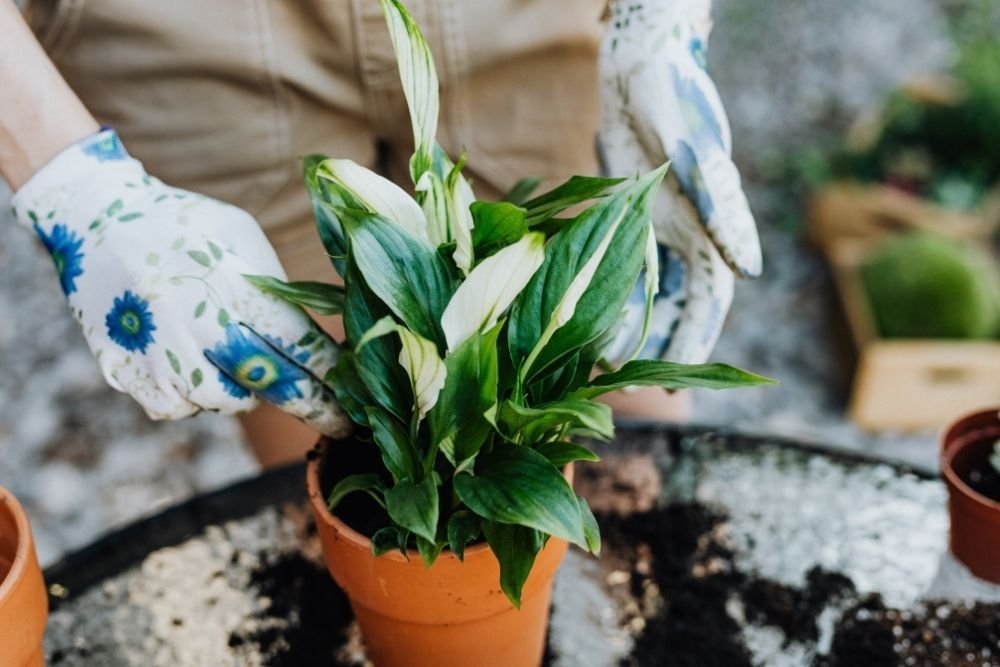
Use a Bloom Booster Fertilizer
To encourage flowering, think about using a fertilizer that has a higher phosphorus content (the middle number on the fertilizer label). To prevent harm to the plant, apply this fertilizer sparingly and follow the directions on the label.
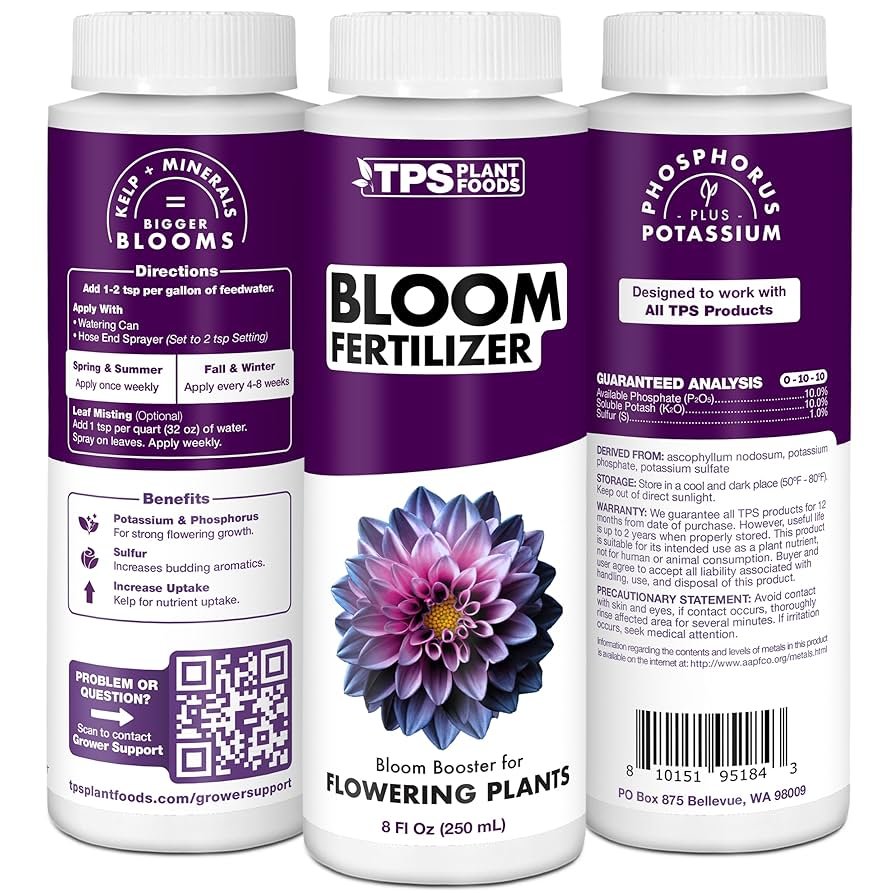
Be Patient
Finally, remember that patience is essential. A peace lily can take a while to bloom, even if you are providing the ideal conditions. They generally bloom in the spring, but if they feel very at home in their environment, they may surprise you at other times. Keep providing consistent care, and your peace lily will eventually reward you.
The optimal strategy to encourage your peace lily to bloom is to make sure it is content and healthy. Since every plant is different, it could take some trial and error to find the ideal combination of maintenance techniques for yours. Keep an eye on how your plant reacts to the adjustments you make, and with these professional pointers, you’ll be sure to appreciate the tranquil beauty of peace lily blooms in your home.
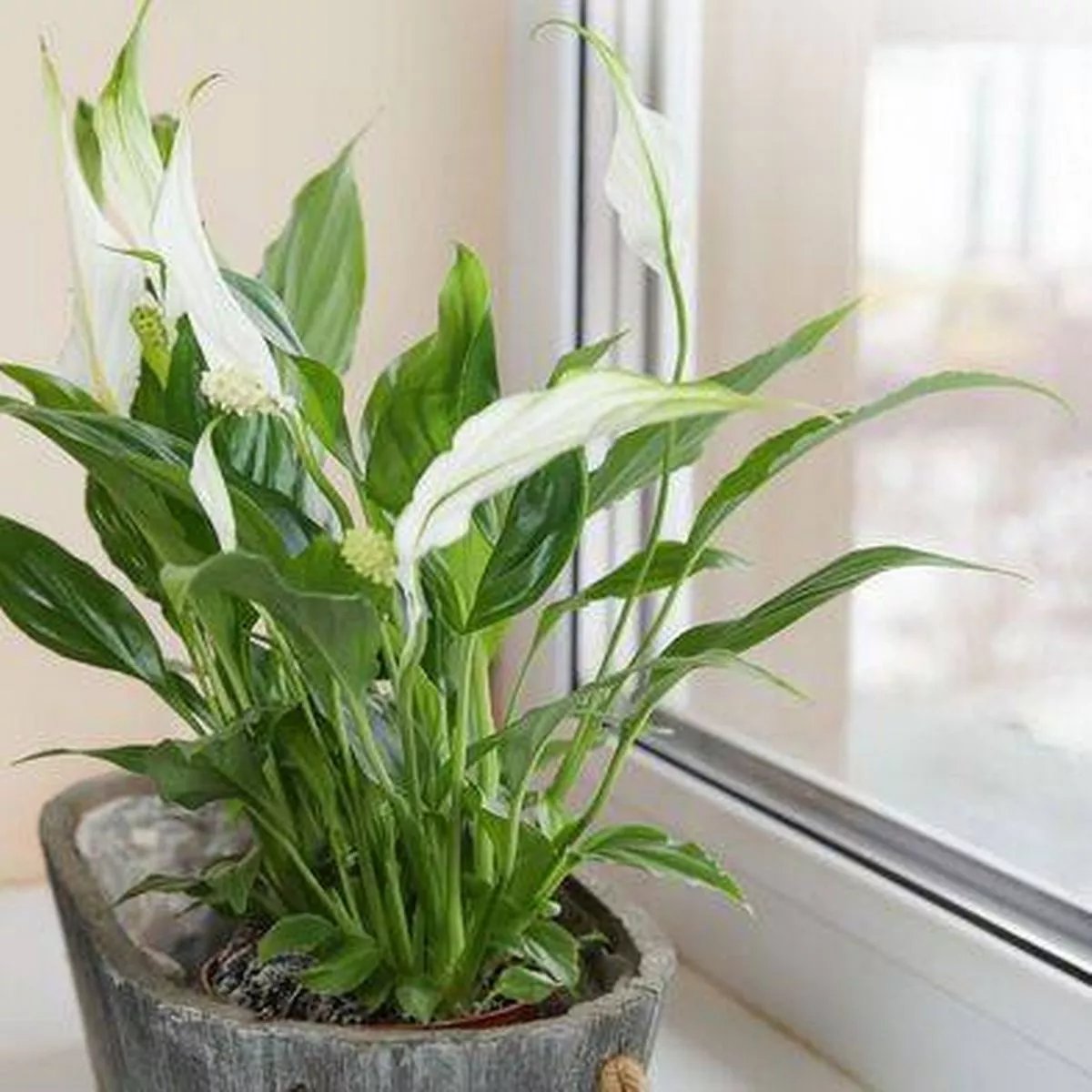
Conclusion
In conclusion, to successfully encourage your peace lily to flower, it’s crucial to create an environment that mirrors its natural habitat, ensuring proper lighting, consistent watering, and adequate humidity. Utilizing moderate fertilization, timely repotting, and maintaining stable temperatures will further support the plant’s health. Regular pruning of spent flowers and leaves, along with careful consideration of pot size and soil type, can enhance blooming potential. Additionally, employing a bloom booster fertilizer and practicing patience will yield results, transforming your peace lily into a stunning focal point in your indoor space. By providing the right care and conditions, you’ll soon enjoy the delightful and tranquil beauty of blooming peace lilies in your home.

